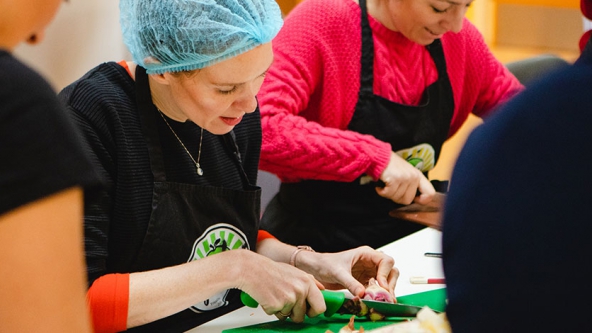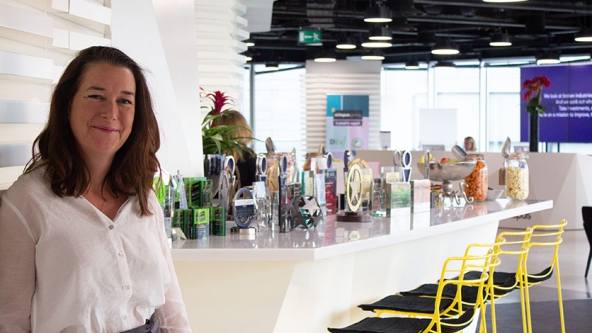Nurturing strong relationships has been the key to Peter Dias’ successful career. We spoke to an Investment Director of the Octopus Renewables Investment Team about teamwork, good communication and what you can learn from working at McDonald’s.
What does the Renewables Investment Team do?
There are 18 people in our team at the moment, and we’re in charge of investing in new renewable projects. Usually, this involves buying wind and solar farm sites and managing their finances, and occasionally selling sites. We also get involved in fundraising so we can have more money to invest.
What skills do you need to do succeed in investment management?
You might think being an investment director is all about the numbers. Of course, numbers are important but day-to-day, a lot of my job is business development and project management. To seal an investment deal, you’ve got to be on top of 10-15 tasks at once.
Alongside this, you need to be good at building relationships. You’ve got to be able to communicate effectively with others on the team and with external partners – and be able to persuade people to do things!
How do you make sure your team works well together?
We take the team dynamic very seriously. When we’re recruiting, for example, we’ll make sure the existing team has a chance to meet the new candidates to ensure anyone coming on board is the right fit.
Is your team working on anything exciting at the moment?
Yes! We’ve just closed two deals worth around €135m with RES, a major renewable energy company. I’m really proud of the team, who put in a marathon effort to make the deals happen. And from a personal perspective it’s a massive achievement; I began the relationship with RES when I started at Octopus back in 2014, and that relationship has led to around £300m worth of investments for us.
What lessons did you learn in your career leading up to Octopus?
My first jobs as a teenager were at McDonald’s and on a construction site fitting aircon ducts. These types of jobs are really, really tough; working the frier at McDonald’s for 11 hours – it’s hard! These starter jobs taught me how to work hard, and gave me the kick I needed to finish my studies and focus on pursuing an investment career.
Have you ever found yourself working outside of your comfort zone?
Yeah, for sure. One of the most challenging points in my career was when I lived in Brazil for two years. The job I’d had lined up fell through (fortunately my partner’s job didn’t so we still decided to go). I had to start from scratch, without speaking the local language or knowing anyone out there. It’s a real shock to the system when you go from doing well in your career to suddenly being unemployed. The experience taught me to think on my feet, and that if you want something, you’ve got to get it yourself. I’ve carried that drive with me into my work at Octopus.
During that period, I also learnt how important it is to keep in contact with people. Without help from people I had worked with in the past, getting off the ground again in Brazil would have been impossible. When you nurture your relationships, it pays dividends in the long-term. In fact, my initial introduction to Octopus was through an old colleague!
What’s the best thing about your job now?
Working with the team, and knowing we’re contributing to making a better world. What we do has a real impact. I think that’s very powerful.
What’s your favourite thing about life at Octopus?
The ‘can-do’ culture. I think it’s really important to give people the opportunity to try things, and Octopus is a great organisation for that.
Where’s your ‘happy place’?
Playing football with the Octopus team every Tuesday. Even if there’s a big deal on, we still find time to ‘get out of our heads’ and kick a ball around for 40 minutes. It’s a great way to de-stress.
At Octopus, we use the SDI® process to help team members learn more about their motivations, which can help us understand how we and our colleagues like to work. We also asked Peter to tell us more about his SDI® colour and motivations.
What’s your SDI® colour and what does it mean?
I got red in my SDI® test which means I’m performance-driven.
How does knowing your and other people’s colours help you work better?
It is helpful, but the downside is that people might feel pigeon-holed, for example thinking they need to be red to do deals, which isn’t the case at all. People just do things differently. Increasingly, as I go through my career, I’m learning that success is about having lots of people from different backgrounds in your team, with different perspectives.
What advice would you give someone who’s a similar colour to you to help them succeed?
In general, my advice is to listen to people and make sure you communicate appropriately. That’s the key, whatever ‘colour’ you are. You need to bring people along for the journey – you can’t just go off on your own direction.
Any final words of advice?
Always remember, however big the industry feels, word travels fast in every industry. So be nice to people and don’t burn your bridges. It’s the right thing to do, but also, you never know when you might meet someone again. The person you once p***ed off could be interviewing you for a job in the future!
Read more tips from Octopus leaders on how motivations can help you succeed at work


